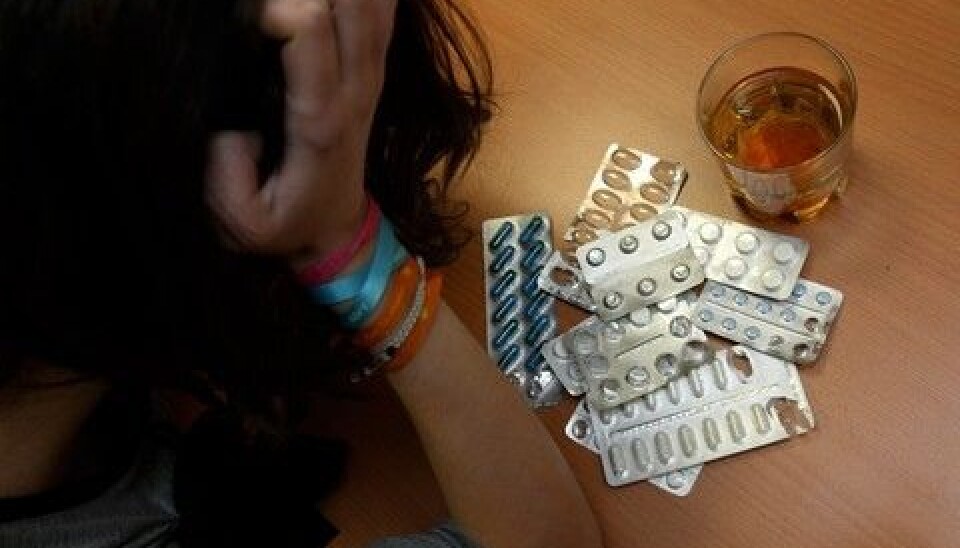
Young mental patients given drugs ― not check-ups
Over a quarter of Norwegian youth diagnosed with mental problems are still being medicated nine years later.
Denne artikkelen er over ti år gammel og kan inneholde utdatert informasjon.
Once a youth is prescribed medications for insomnia, anxiety or depression, years of perpetual use of the drugs can follow.
More than 25 percent of those who reported suffering a mental illness as 15- or 16-year-olds are still using psychotropic drugs at the age of 25.
“This is disturbing news. These young people deserve better follow-up treatment from the public health services,” says Anne Kjersti Myhrene Steffenak of Hedmark University College.
Myhrene Steffenak was recently awarded her PhD from Karlstad University in Sweden, where she studied mental health and the prescriptions issued to teens aged 15 and 16, along with public health nurses’ evaluations of their professional roles in this context. Her study involved data registration and qualitative interviews.
Sleeping pills increasing the most

In Myhrene Steffenak’s study population of almost 12,000 teens aged 15 and 16, around 15.5 percent had mental illnesses. Three out of four were girls.
A quarter of the youth with psychological problems in her study were prescribed sleeping pills, antidepressants or tranquilizers.
Myhrene Steffenak says the lion’s share of this increase involved sleeping pills. In particular, the increase was for pills containing melatonin, a hormone that affects circadian rhythm. This rise in use has occurred even though the medication has not been authorised for use among young people, due to a lack of documentation of its safety and long-term effects.
Poor follow-ups
The adolescents in her study did not have enough access to professional support from the health services. Consequently, they also did not have enough follow-up in terms of the medications they were prescribed.
Qualitative interviews with the teens who suffered serious mental problems showed that their family doctor used only around 15 minutes in consultations with them.
In cases where the doctor prescribed antidepressants, the young people often lacked information about the physical effects of the medicine. Some of the teens reported having to conduct their own searches on the Internet to find out about the medications’ effects and side-effects.
“The adolescents say all they have to do is call the doctor to get their antidepressant prescriptions renewed, without being given an appointment for a new consultation,” says the researcher.
Nobody to talk to
When the youths feel they are not getting proper follow-up from their doctors, public health nurses become all the more important both in terms of talking to the young patients as well as keeping an eye on the effects of the medications.
The researcher points out that the teens’ experiences with antidepressants can be both positive and negative.
Some find that the medicine can be enabling, helping them make friends and function fairly normally in daily life. But many encounter major side-effects from the drugs, such as hallucinations or apathy and a flat emotional life.
They can find it frustrating when they don't have anyone to talk to about these problems.
Parents are ashamed
These medications affect the teens' life with friends, family and school. Mentally ill teens who were interviewed Myhrene Steffenak say their friends and family reacted negatively to their use of the prescription drugs. Some of their parents are ashamed about this usage.
“Unfortunately the young people who have these kinds of mental problems are beleaguered with additional burdens. Often they have physical aches and pains, they drink alcohol and smoke more than others and they are less physically active than other teens.”
They also tend to come from low-income families and were not very ambitious in terms of getting an education.
------------------
Read the Norwegian version of this article at forskning.no
Translated by: Glenn Ostling



































